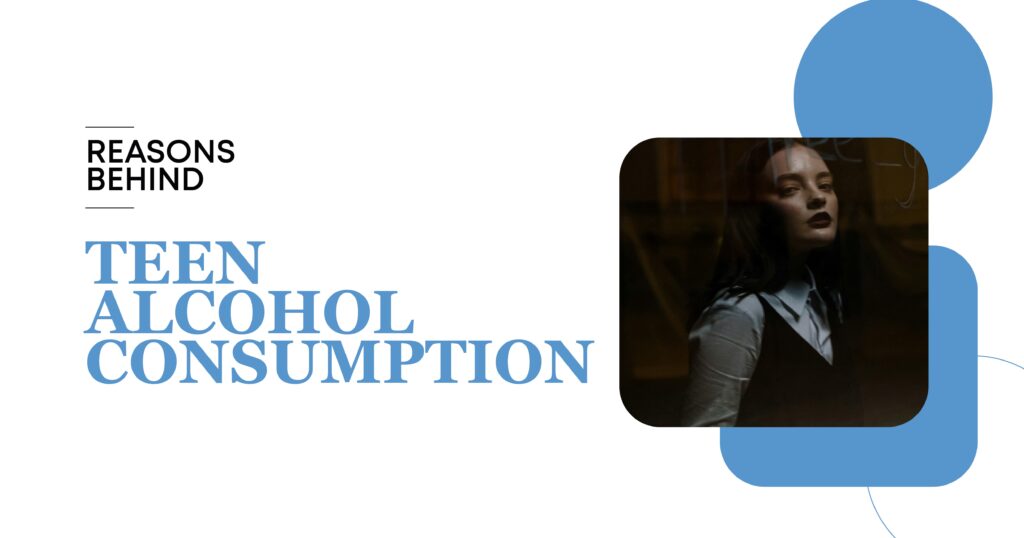Alcohol use among teenagers is a growing concern for parents, educators, and healthcare professionals alike. Many wonder: why do teens drink alcohol, despite the known risks? The answer is complex and influenced by a combination of social, psychological, and cultural factors.
From peer pressure to stress relief, teens often find themselves experimenting with alcohol as part of their development, yet the consequences can be life-altering. This article explores the reasons behind teen alcohol use, the dangers it poses, and effective ways to address this issue.
Why Do Teens Drink Alcohol?
Understanding why teens drink alcohol requires looking at multiple layers of influence. Teens are in a critical stage of life, where identity, independence, and social connections matter greatly. Their decisions often stem from a desire to fit in, rebel, or cope with challenges. Below are some key reasons that influence this behavior.
The Role of Peer Influence in Alcohol Consumption
One of the most significant drivers of teen drinking is peer pressure. Teens often see alcohol as a “ticket” to social acceptance, especially when surrounded by friends who normalize drinking. They may feel left out if they refuse or fear being judged as “uncool.”
According to research from the National Institute on Alcohol Abuse and Alcoholism (NIAAA), adolescents are highly susceptible to peer dynamics because their brains are still developing, particularly in areas linked to decision-making and impulse control.
How Family Dynamics Affect Teen Alcohol Use
Family plays a pivotal role in shaping teen behavior. Teens raised in environments where alcohol use is common may perceive it as acceptable or even normal. Lack of parental involvement, inconsistent rules, or exposure to family conflict can push teens toward drinking as an escape. On the flip side, strong parental guidance and open conversations about alcohol significantly reduce the likelihood of underage drinking.
Media and Psychological Influences on Teen Drinking
The media plays an undeniable role in shaping teen attitudes toward alcohol, often portraying drinking as glamorous, fun, or a rite of passage. Combined with internal struggles, these influences push many toward risky experimentation.
The Psychological Factors Behind Teen Alcohol Use
Teens may turn to alcohol for stress relief, to manage anxiety, or to cope with emotional struggles. The desire to numb feelings or escape responsibilities becomes stronger when they lack healthy coping skills. The American Psychological Association highlights that teens with untreated mental health issues, such as depression or social anxiety, are more prone to substance misuse.

In addition, social media adds another layer of influence. Seeing peers post about parties or drinking creates a “fear of missing out” (FOMO), pressuring teens to participate to feel included. The mix of external media messages and internal psychological needs creates a powerful push toward experimentation.
The Impact of Stress and Coping Mechanisms
School pressures, extracurricular activities, family expectations, and social challenges all contribute to overwhelming stress for many teens. Without positive outlets, alcohol becomes an easy—though dangerous—solution. Consider how stress acts as a gateway:
| Stress Source | Teen Response | Risk of Alcohol Use |
| Academic pressure | Escape from expectations | High |
| Social conflicts | Attempt to “fit in” | Moderate |
| Family struggles | Emotional avoidance | High |
| Low self-esteem | Boosting confidence artificially | High |
This table highlights how unhealthy coping mechanisms can quickly turn into patterns of underage drinking.
Curiosity, Rebellion, and Experimentation
Teenagers are naturally curious. Many wonder about the taste, effects, and experiences alcohol provides. For some, curiosity alone sparks the first sip. For others, rebellion plays a role; they want to defy parental rules or societal expectations.
Curiosity and the Desire for New Experiences
Adolescence is a period of experimentation. Teens want to push boundaries, try new things, and feel grown-up. Alcohol becomes part of that exploration, often framed as a “fun” or “daring” activity. Unfortunately, this experimentation can set the stage for risky drinking habits in the future.
The Consequences of Teen Alcohol Consumption
While reasons for drinking may seem understandable, the risks are serious and long-lasting. Underage drinking impacts both physical and mental health, sometimes leaving permanent effects.
Health Risks Associated with Underage Drinking
- Brain Development. Teen brains are still maturing, particularly in areas tied to memory, learning, and decision-making. Alcohol disrupts this process.
- Addiction Risks. Teens who begin drinking early are more likely to develop alcohol dependency later in life.
- Risky Behavior. Alcohol lowers inhibitions, leading to reckless actions like unsafe driving, unprotected sex, or violent behavior.
- Mental Health Struggles. Drinking can worsen depression, anxiety, and other emotional struggles.
TheCenters for Disease Control and Prevention (CDC) reports that underage drinking contributes to thousands of deaths annually in the United States, often from accidents, alcohol poisoning, or risky behavior. These consequences highlight the urgency of prevention.
Learn More Strategies to Prevent Teen Alcohol Use at Hillside Horizon for Teens
At Hillside Horizon for Teens, we understand the challenges families face when navigating issues like teen alcohol consumption. Our team specializes in guiding teens toward healthier coping strategies, improved family communication, and stronger self-esteem. Prevention starts with education and support.
If you’re concerned about your teen or want to explore effective strategies to reduce their risk, reach out to us today. Hillside Horizon for Teens offers a safe environment for recovery and growth.

FAQs
How does peer pressure contribute to teen alcohol consumption?
Peer pressure creates a powerful urge to conform. When friends drink, teens often feel they must join in to avoid rejection or embarrassment.
What role does social acceptance play in teens’ decisions to drink alcohol?
For many teens, drinking is tied to social acceptance. Alcohol becomes a way to feel included, boost popularity, or appear more mature in front of peers.
How do stress relief and coping mechanisms influence teens to consume alcohol?
When teens lack healthy outlets, they may use alcohol for stress relief. Unfortunately, this coping mechanism often creates bigger emotional and physical problems.
Why are curiosity and experimentation major factors in teen alcohol use?
Curiosity drives teens to try new things, while experimentation helps them feel adventurous or independent. Sadly, this risk-taking can lead to harmful drinking habits.
In what ways does the media influence teen attitudes towards drinking?
Movies, TV, and social media often glamorize drinking, making it seem fun and harmless. These media influences shape teens’ views and normalize alcohol consumption at a young age.




